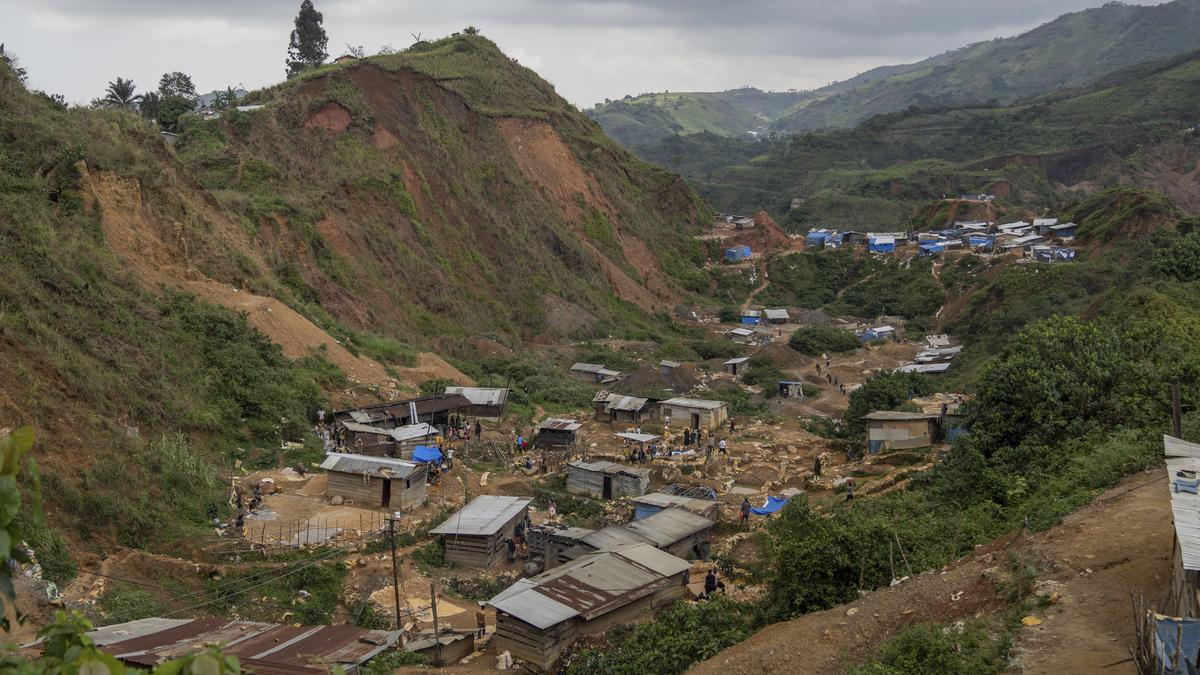Divine Wisoba was found slumped on the ground over a mound of dirt, pulling weeds from her daughter’s grave. Her 1-month-old daughter, Maombi Katengey, died from mpox in eastern Congo in August. Wisoba, 21, was too traumatized to attend the funeral.
On her first visit to the cemetery, she wept into her shirt for the child she lost and worried about the rest of her family. She expressed her devastation, saying, “When she was born, it was as if God had answered our prayers — we wanted a girl. But our biggest joy was transformed into devastation.”
In Congo’s Kamituga children are the worst sufferers
Maombi is just one of over 6,000 people suspected to have contracted the disease in South Kivu province, the epicenter of the world’s latest mpox outbreak. The World Health Organization has labeled it a global health emergency. A new strain of the virus is spreading, primarily through skin-to-skin contact, including but not limited to sex. Disease experts are alarmed by the lack of funds, vaccines, and information to control the spread.
While mpox typically causes mild symptoms like fever and body aches, it can lead to serious cases with prominent blisters on various parts of the body. The disease had been spreading unnoticed in Africa for years until a 2022 outbreak reached more than 70 countries. Although the majority of cases in that outbreak were among gay and bisexual men globally, officials note that mpox has long disproportionately affected children in Africa. Now, cases are rising sharply among kids, pregnant women, and other vulnerable groups due to various types of close contact.
Not enough awareness about symptoms
Kamituga, a remote gold mining town in eastern Congo, has become a hotspot for mpox. It attracts miners, sex workers, and traders who are constantly on the move, leading to a rapid spread of the disease. Since the outbreak began a year ago, nearly 1,000 people in Kamituga have been infected, with eight deaths, half of them children.
The World Health Organization believes that mpox outbreaks could be halted within the next six months with strong leadership and cooperation from governments. However, the reality in Kamituga paints a different picture. The general hospital there sees an average of five new cases daily, with weekly suspected cases in South Kivu skyrocketing from about 12 in January to 600 in August. This increase is likely underestimated due to limited access to rural areas, residents’ inability to seek care, and the transient nature of Kamituga.
Locals admit they lack sufficient information about mpox. Before her daughter fell ill, Wisoba herself was infected but unaware. She mistook her symptoms for a common sexually transmitted infection until she was diagnosed with mpox at the hospital. Although she recovered, her daughter developed lesions on her foot and tragically passed away.
Wisoba advocates for the government to invest more in educating people about protective measures. Local officials struggle to reach areas beyond a few miles outside Kamituga to track suspected cases or inform residents. Radio messages are broadcast, but they do not reach far enough.
Kasindi Mwenyelwata goes door to door explaining how to detect mpox symptoms, but he lacks the resources to create visual aids like posters. ALIMA, one of the few aid groups working on mpox in Kamituga, faces funding shortages that prevent them from reaching the 150,000 residents in need of education and healthcare services.
If support continues to dwindle and mpox spreads, it could have devastating effects on the economy and public health in the region. Vaccines are urgently needed, especially for high-risk groups. Despite Congo’s government budgeting over $190 million for its mpox response, only a fraction of the vaccine doses have arrived, and resources are limited.
Most people with mild cases recover within two weeks, but complications can arise, especially in children and immunocompromised individuals. Doctors focus on cleanliness and pain management to prevent secondary infections.
Lack of resources and knowledge
Experts highlight the challenges posed by the new strain of mpox, including a lack of resources and knowledge for effective prevention. They stress the importance of vaccines, even if limited to adults under emergency approval in Congo. However, the distribution of vaccines to priority areas like Kamituga remains uncertain due to logistical challenges.
Doctors continue to encounter puzzling cases, such as pregnant women experiencing miscarriages after contracting mpox. The lack of clear information on the virus’s transmission and long-term effects fuels fear and uncertainty among the population.
As the community grapples with the impact of mpox, awareness and access to healthcare remain critical in curbing the spread of the disease. The road ahead is challenging, but with concerted efforts and adequate resources, there is hope for containing the outbreak in Kamituga and beyond.
Published – September 19, 2024 11:34 am IST








































